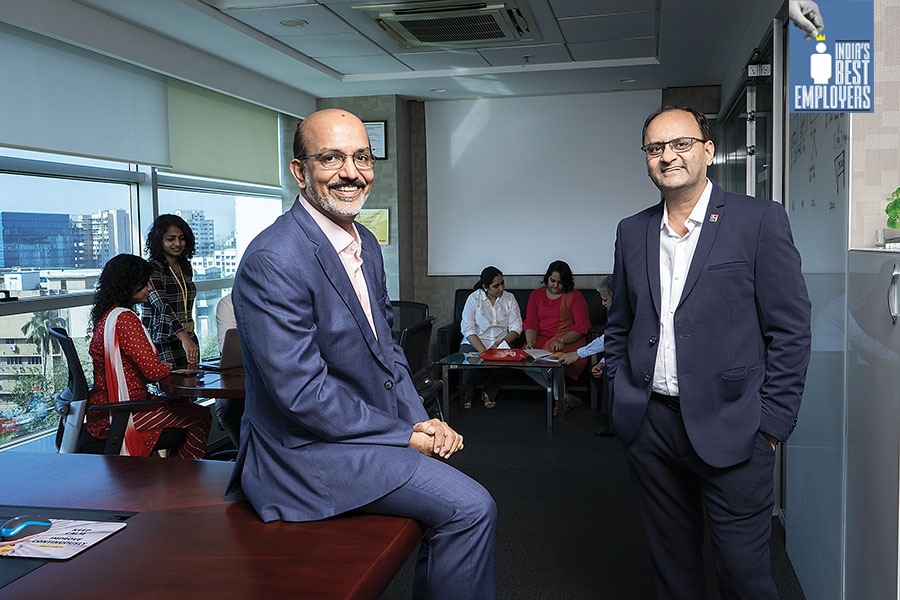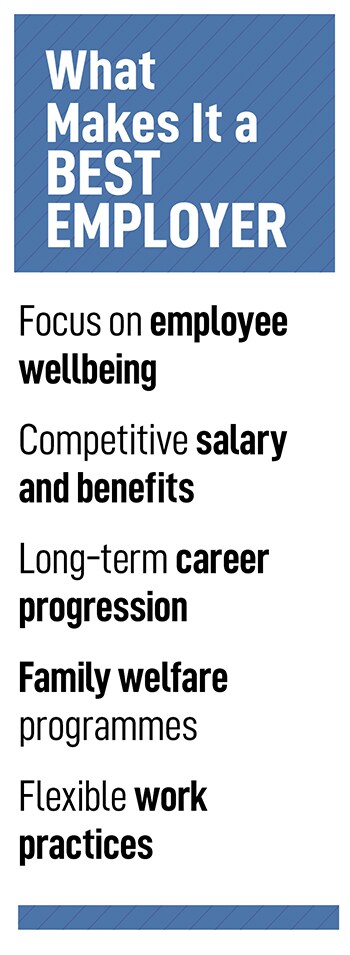
Build layers of support systems for your employees: RS Subramanian, DHL Express
With logistics employees at the frontline during the pandemic, the last two years were a test of DHL Express' mettle, and they came away with flying colours
 RS Subramanian, senior VP and MD (left) and Sunjoy Dhaawan, VP for human resources
RS Subramanian, senior VP and MD (left) and Sunjoy Dhaawan, VP for human resources
Image: Neha Mithbawkar for Forbes India
For nearly two years, people on the frontline have had it difficult.
Massive health risks and emotional stress caused by the Covid-19 crisis have made them the most vulnerable. Downsizing and salary cuts at the workplace further affected employee morale amidst the uncertainty.
That is why, for a company with a significant portion of its workers on the frontline, the past two years have been a test of DHL Express India’s mettle. With over 1,800 employees, one of the country’s largest logistics providers had to quickly adapt to the fast-evolving scenarios on the ground, especially as lockdowns became the norm. DHL Express India is the logistics, parcel-delivery, ecommerce shipping and international supply chain management unit of Deutsche Post DHL Group.
“There has to be a backup to a backup to backup. That’s classic DHL,” says RS Subramanian, senior vice president and managing director at DHL Express India. “You have a plan A, plan B, plan C and plan D so that you are able to meet any challenge. We built layers of support system that worked extremely well.”




 “The kind of support systems we built in the early stages of the pandemic gave confidence to all the employees to be able to battle,” adds Subramanian. “We maintained our entire reward and recognition programme, compensation, and benefits cycle, as though there was no pandemic. Salary increases, appraisals and bonuses happened as clockwork.”
“The kind of support systems we built in the early stages of the pandemic gave confidence to all the employees to be able to battle,” adds Subramanian. “We maintained our entire reward and recognition programme, compensation, and benefits cycle, as though there was no pandemic. Salary increases, appraisals and bonuses happened as clockwork.”



